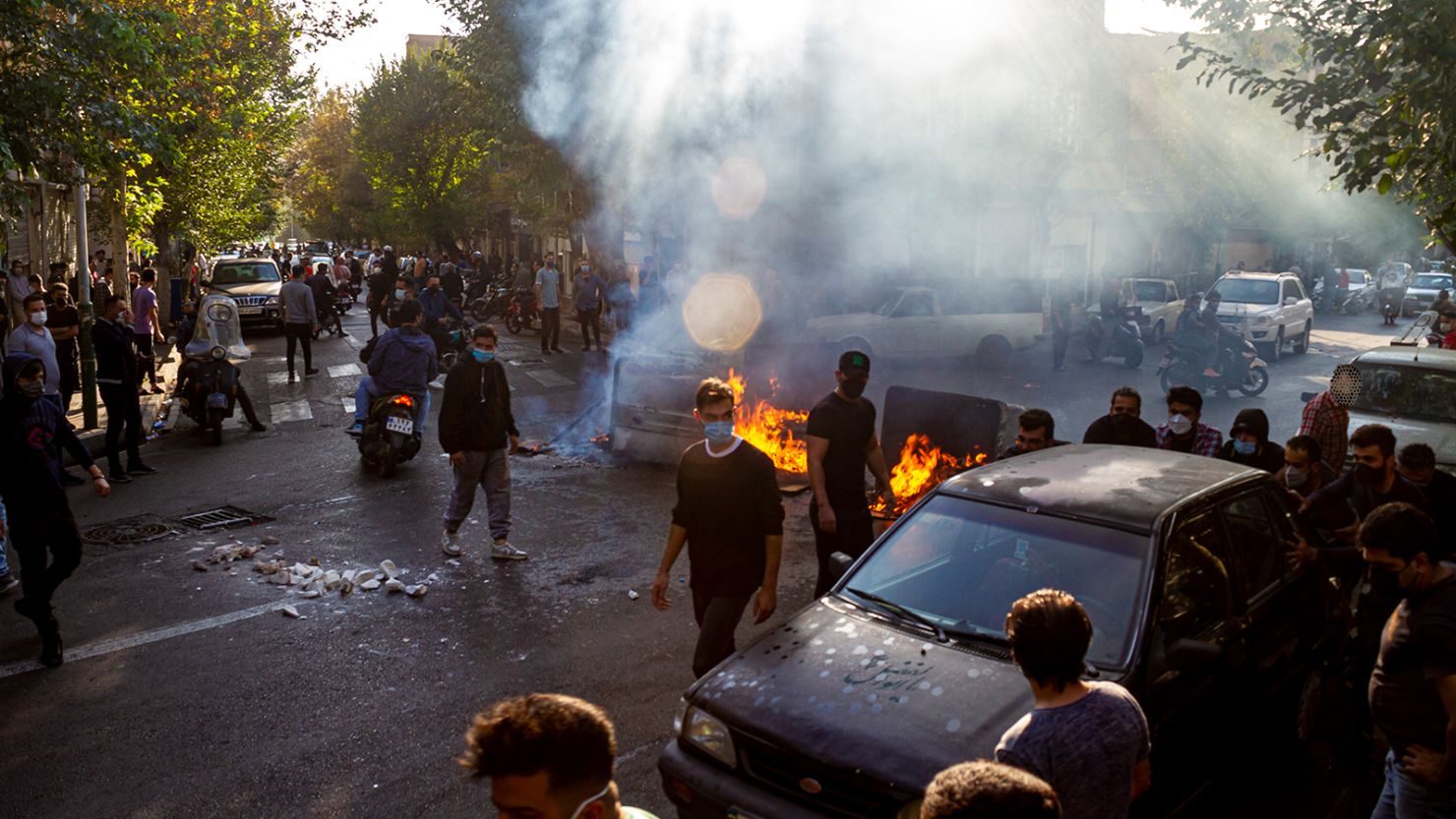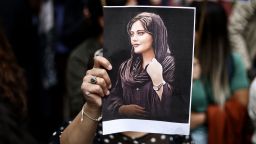Iranian lawmakers have urged the country’s judiciary to “show no leniency” to protesters in a letter cited by state-run Press TV on Sunday, as thousands of people continue to rally on the streets despite the threat of arrest.
The Islamic Republic is facing one of the biggest and unprecedented shows of dissent following the death of Mahsa Amini, a 22-year-old Kurdish Iranian woman detained by the morality police allegedly for not wearing her hijab properly.
In an open letter signed by 227 of Iran’s 290 members of Parliament, Press TV reports the lawmakers calls for protesters to be taught a “good lesson” to deter others who threaten the authority of the Iranian government.
“We, the representatives of this nation, ask all state officials, including the Judiciary, to treat those, who waged war (against the Islamic establishment) and attacked people’s life and property like the Daesh (terrorists), in a way that would serve as a good lesson in the shortest possible time,” the letter read according to state-run Press TV.
Lawmakers added that such a punishment – the methods of which were not specified – would “prove to all that life, property, security and honor of our dear people is a red line for this (Islamic) establishment, and that it would show no leniency to anybody in this regard.”
Iran has charged at least 1,000 people in Tehran province for their alleged involvement in the nationwide protests over Amini’s death, the largest such show of dissent in years, state news agency IRNA has reported. Their trials are public and have been underway for more than a week.
Norway-based rights group Iran Human Rights (IHR) said in a report last Wednesday that dozens of protesters are facing charges including “enmity against God” and “corruption on earth,” which carry the death sentence.
The letter from the members of Parliament also reiterates prior Iranian government claims that the ongoing protests – that it calls riots – were incited by the United States and other enemies of Iran. Iran’s government has provided no evidence to back up its claims of foreign involvement in the protest movement.
Javaid Rehman, the U.N.’s special rapporteur on the Situation of Human Rights in the Islamic Republic of Iran, told the UN Security Council last week that as many as 14,000 people, including journalists, activists, lawyers and educators, had been arrested since protests erupted in Iran in mid-September.
Rehman said the “unabated violent response of security forces” had caused at least 277 deaths.
The recent death of Kurdish-Iranian woman Nasrin Qadri sparked a wave of protests in her hometown Marivan on Sunday, with the Kurdish rights group Hengaw Organization for Human Rights and activist outlet IranWire alleging that she had “suffered severe injuries” from baton blows to the head wielded by Iranian security forces.
Her cause of death has been disputed; the public prosecutor in Shahriyar, a town about half-an-hour outside Tehran where Qadri reportedly lived, said that the initial medical diagnosis for her cause of death was poisoning, adding that according to a family statement, she had a prior illness as well, as reported by the state-run Islamic Republic News Agency (IRNA).
Her father separately said in an on-camera statement which aired on Iranian state television that Qadri died from the flu and that “rumors” about her death were false – an explanation that Hengaw activist Azhin Shekhi believes was forced.
“First they forced her family to say publicly that her death was caused by disease,” Shekhi told CNN.
“Security forces also did not allow her relatives to gather at her parents’ house when her body was returned home, and they also forbade any kind of funeral or burial service,” Sheikh added.
CNN cannot independently verify arrest figures, death tolls, and many of the accounts of those killed due to the Iranian government’s suppression of the media, the internet and transparency. Nor can media directly access the government for their account on such cases, unless there is reporting on state media, the mouthpiece of the government.
Correction: This story has been updated to correct the spelling of Azhin Shekhi's name.
CNN’s Jomana Karadsheh and Hamdi Alkhshali contributed to this report.


